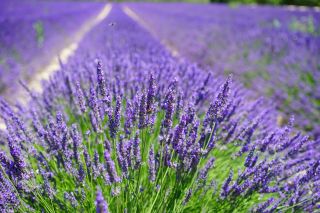Scent
The Calming Scents of the Summer’s Nature
Does the scent of some trees and plants have calming properties?
Posted July 29, 2024 Reviewed by Michelle Quirk
Key points
- There are some plants and trees whose scents have calming properties.
- The olfactory nerve is the shortest cranial nerve.
- Aromatherapy uses aromatic materials including essential oils from plants to improve well-being.
During summer, I am doing my morning meditations under my mimosa tree. It has beautiful pinkish flowers that have a sweet scent. This scent is very calming to me. So I am sitting and breathing in that beautiful scent of the mimosa tree, and it inspired me to write about the calming scents of nature.

I did not find any research on the calming scent of mimosa flowers, so I guess it may not be this tree’s main healing property. I also understand that people perceive scents differently, so what is calming to some people may not be calming to others. However, to my surprise, research suggests that the mimosa tree has medicinal properties such as antimicrobial, antiviral, and antioxidant. Also, all parts of the tree possess medicinal properties, and mimosa flowers are a major source of nectar for honey production. However, some research suggests that other trees such as pine, cedar, oak, and spruce release aromatic compounds that have a calming effect.
There is a fair amount of research on the calming effects of the scent of the lavender plant and lavender essential oils. It looks like the lavender plant is the one that has been most commonly used for stress reduction and relaxation in alternative medicine but also in the cosmetics industry (creams, body lotions, etc.). I have a few lavender plants in my garden, so I can swear to its relaxing properties. I also use lavender in my office to help my anxious patients feel more relaxed. I make lavender buckets from my garden lavender when it’s in bloom and place them in flower arrangements around my office. I also sometimes spray lavender oil around me at the end of a long and stressful workday. It instantly makes me feel better.

There are other plants whose scents have calming properties such as rosemary, chamomile, roses, jasmine, lemon balm, valerian, and basil. Most of them grow well in soil or in a pot placed on a sunny window sill and require little care, except for watering when the soil is dry, which isn’t often. You can buy small plants in local nurseries and plant them in a pot or in your garden. When you feel stressed, pick a couple of leaves or flowers from a plant. Sit in a quiet place and rub the leaves or flowers between your hands. Then inhale their beautiful smell slowly, several times. It may help you relax.
This brings us to the subject of aromatherapy, which is a holistic therapy that uses aromatic materials including essential oils from plants to improve well-being. Aromatherapy has been used in folk medicine for thousands of years and is still used in alternative medicine practices, mainly for stress reduction and relaxation.
As I am a neuropsychologist, using scents to influence our brain makes sense to me because the nose has a direct connection to the brain through the olfactory nerve and olfactory bulb. The olfactory nerve is the shortest cranial nerve. It is the shortest distance from the outside world to our brain. It is only a few centimeters long (therefore, picking your nose is not a good idea).
The essential oils of certain plants used in aromatherapy may be effective in relaxing your mind and body, but most of them are quite expensive. You really don’t need expensive essential oils to relax yourself. You can make yourself quite relaxed by using a leaf or a flower of plants that you can grow yourself or just sit by the plant or a tree in your garden or your neighborhood that makes you feel relaxed. Use nature to help you relax and heal. It is free!
References
Baby, J. et al. Pharmacology and Traditional Uses of Mimosa pudica.” International Journal of Pharmaceutical Sciences and Drug Research 2013 5(2).
Rizwan, K. et al. “Pytochemistry and Diverse Pharmacology of Genus Mimosa: A Review” Journal Biomolecules Vol 12, 2022.
Koulivand, P.H. et al. “Lavender and the Nervous System”. Evid Based Complement Alternat Med. 2013: 681304.
Ghavami, t. et al. “The effect of lavender on stress in individuals: A systemic review and meta-analysis”. Complementary Therapies in Medicine Vol 68, September 2022.


